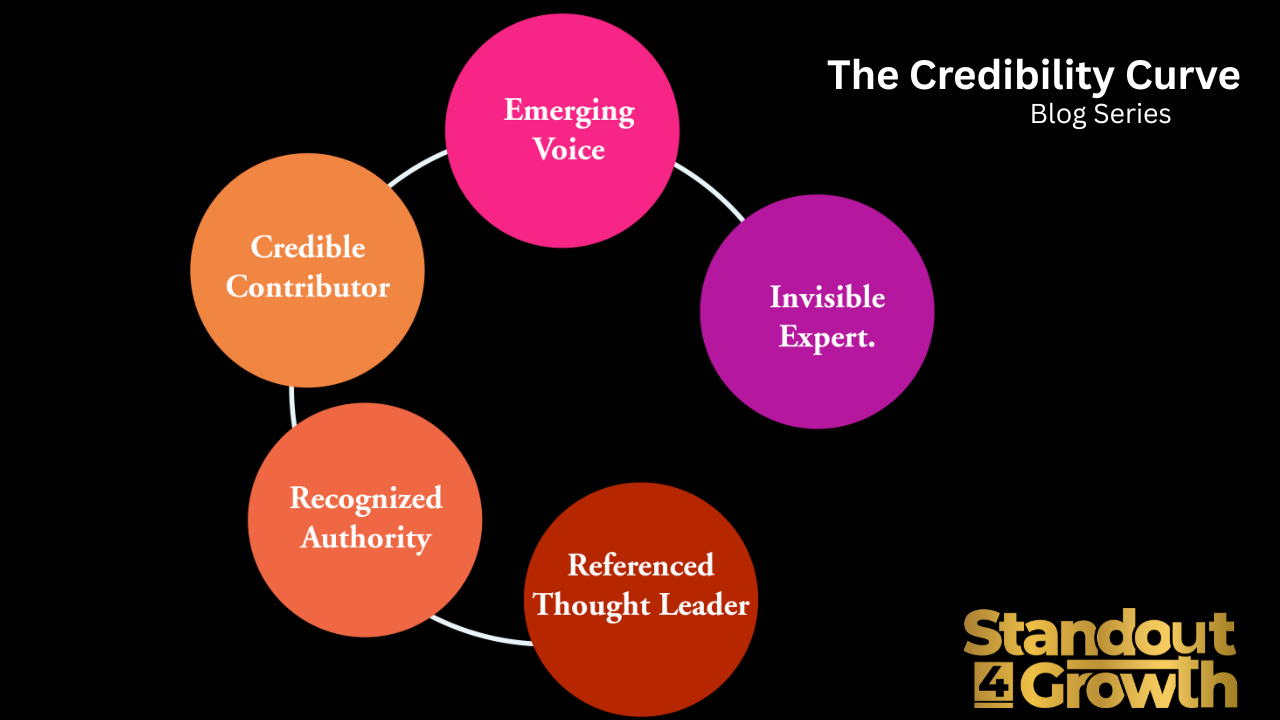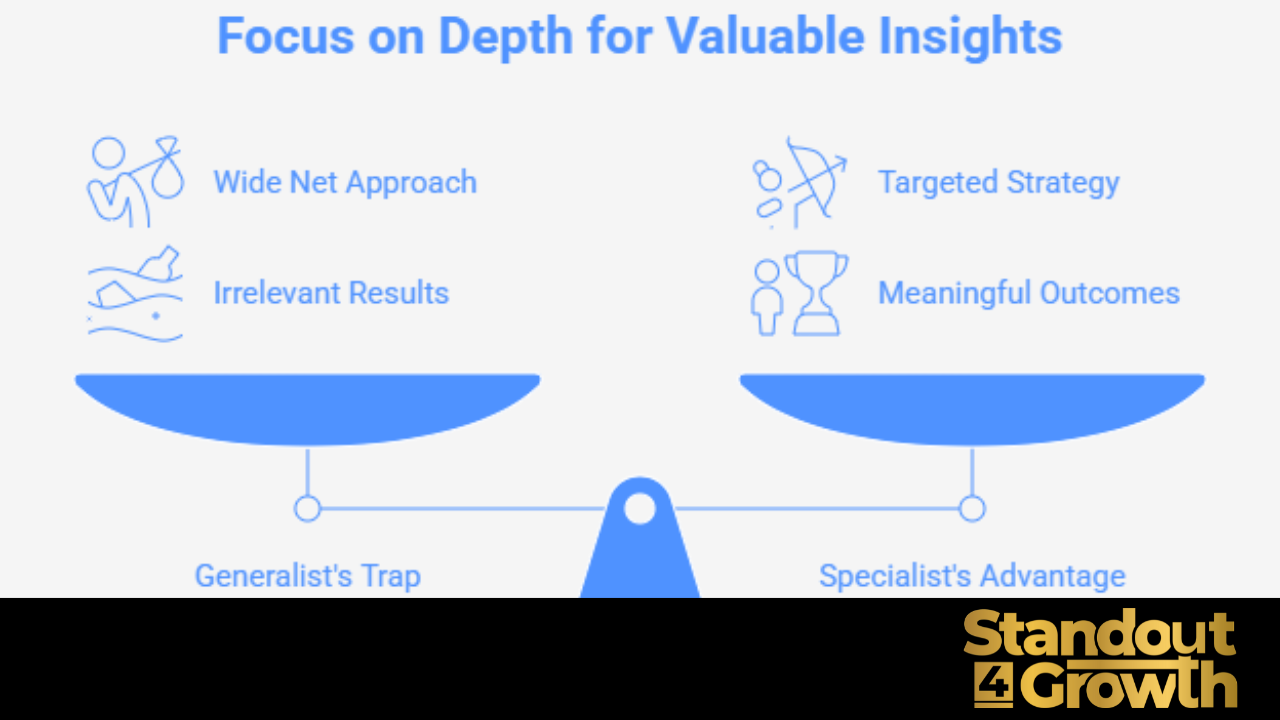
Shine through the Pain: Insights from ‘Never Finished’ by David Goggins
I’m currently engrossed in the pages of ‘Never Finished’ by David Goggins, and I must say, it’s a true page-turner.

So far in the Credibility Curve series, we’ve gone from being invisible to becoming a trusted contributor. If you’ve been creating content and earning recognition, you may now be entering the Recognized Authority stage.
This is the point where your name is widely known and respected within your industry; you’re not just contributing to discussions, you’re often leading them.
As a Recognized Authority, your expertise is acknowledged at a national or international level for your niche. Colleagues, media, and even competitors recognize you as a top authority; you might attract premium opportunities (clients, job offers, speaking gigs) because of your reputation.
At this stage, the focus shifts to scaling your impact by teaching others, mentoring, and codifying your knowledge into intellectual property (IP). In other words, you move from building your platform to building your legacy. Here’s how to navigate Stage 4 effectively:
One hallmark of a true authority is their influence on others’ development. Seek opportunities to mentor promising professionals in your field, whether through formal programs or informal coaching.
Mentoring not only helps others but also solidifies your own knowledge and leadership brand, it forces you to articulate your insights clearly and lead by example.
Likewise, find ways to teach: perhaps guest lecturing at a university, leading workshops, or creating a training course for your company.
Great leaders are great teachers, and your ability to break down complex ideas into learnable insights will further elevate your status. For instance, a C-suite executive might start an internal leadership academy or publish thought pieces aimed at educating the next generation.
Teaching amplifies your impact and spreads your influence through those you train.
In this context, “IP” means your unique frameworks, methodologies, or branded processes that set you apart. Think of this as packaging your expertise into a form that others can use (with attribution to you).
Perhaps you’ve noticed patterns in how you approach strategy, formalize that into a named framework or model.
If you’re an HR expert, maybe you create a proprietary “5-Step Culture Change Blueprint” that you can share in talks or license as a service.
Creating IP demonstrates that your knowledge is not just ad-hoc but organized and innovative. It can also be a tangible asset, for example, developing a toolkit or software based on your ideas.
Document your processes, seek trademarks or copyrights if applicable, and weave these signature concepts into your content. This way, when people use or mention your framework, you get referenced, further cementing your authority.
As a recognized authority, doors open for wider influence, please step through them.
Consider taking up leadership roles in professional associations, think tanks, or advisory boards where you can impact industry directions. Also, media opportunities often increase at this stage: you might be invited to opine in articles, speak on news segments, or be quoted in press releases.
Proactively engage with the media and big platforms. Write op-eds for major publications, do Reddit AMAs or LinkedIn Live sessions, or speak on well-known podcasts.
Each high-profile appearance not only reaches a broad audience but also reinforces that you’re a go-to authority.
Moreover, share your success by highlighting your team or industry, recognized leaders often redirect the spotlight to elevate others, which only strengthens your respected image.
For many executives, Stage 4 is when their personal brand significantly benefits their organization, too. Your credibility creates a halo effect, as one study found, an expert’s strong personal reputation often spills over to their company, enhancing the firm’s overall brand and even attracting better clients.
For example, if the CTO of a tech firm is known nationwide for cybersecurity expertise, it can draw new business to that firm because clients trust its leadership. This is why many forward-thinking companies encourage their C-suite to be visible authorities.
Indeed, a strong leader’s personal brand builds trust with customers, employees, and partners.
As a budding Recognized Authority, ask yourself: Who can I lift up and what legacy will I leave?
Identify one person you could mentor or an internal project you could champion that transfers your knowledge (e.g., creating a playbook for best practices in your field).
Also, list one unique approach or framework you use in your work, give it a name and start using it in your talks or writings.
By teaching others and formalizing your intellectual IP, you’re not only amplifying your impact but also securing your place as a thought leader who shapes your industry’s future.
In our final blog, we’ll explore how to cement your legacy and expand your global influence as a Referenced Thought Leader. We’ll talk about books, speaking, and becoming the voice that others cite.
Ready to lead the conversation at the highest level? Don’t miss the series finale.
Looking to build a Winning Thought Leadership brand that stands out? Click here to join our upcoming masterclass ‘Turn Your Ideas Into Influence – Thought Leadership Masterclass’
You can also check out our self paced on-demand course on Udemy and get learning

I’m currently engrossed in the pages of ‘Never Finished’ by David Goggins, and I must say, it’s a true page-turner.

The Generalists Trap takes root in Swiss Army Knife branding, where being capable of everything becomes the cost of differentiation.

Your name and identity go hand in hand. How often do you change your name? If you are like some